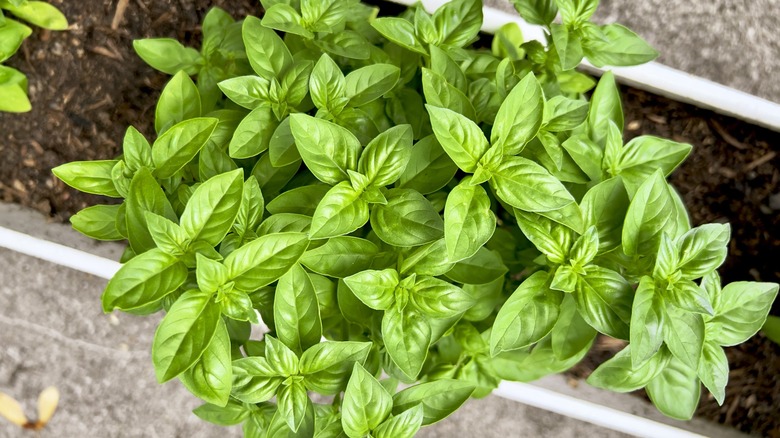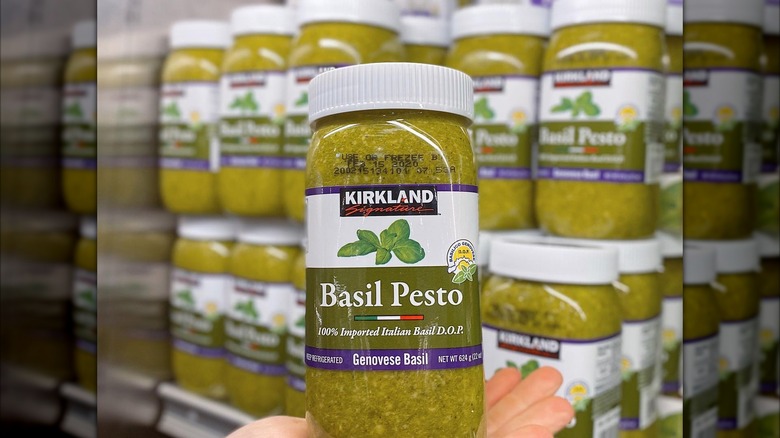Where Does Costco Source The Basil For Its Kirkland Pesto?
We absolutely love a prepared pesto for simple pasta dishes, enlivening turkey sandwiches, and even as a pasta salad upgrade. Like many of its house-brand items, Costco's Kirkland Signature Imported Basil Pesto is delicious and priced right. A peek at the label of this item reveals why, exactly, the pesto is practically perfect — it's made with imported Genovese basil D.O.P. This certainly sounds like a compelling stamp of Italian authenticity, but what does it mean?
Genovese basil is named for Genoa, Italy, which is part of the greater Liguria region of the country where this herb is grown. The tradition of cultivating Genovese basil is hundreds of years old, and made possible by the favorable gardening conditions in hilly Liguria, where both the soil and proximity to the sea are said to impart this basil's signature flavors. Although Genovese basil is technically a sweet basil, its flavor is less sweet than some basil plants close to it in taxonomy. It's said to be the ideal basis for pesto.
Like real Parmigiano Reggiano cheese — which you can also buy at Costco! — and Champagne, which is different from prosecco because where its grapes are grown, Genovese basil is labeled D.O.P. This means that, in Europe, it can only be called thus if it is certified to have come from a specific place. The EU takes D.O.P. labeling very seriously, and some real culinary treasures are protected this way.
D.O.P. labeling helps protect special regional products
You've seen French wines labeled A.O.C. (for appellation d'origine contrôlée) or Italian foods like Genovese basil labeled D.O.P. (denominazione d'origine protetta). These terms mean essentially the same thing: You can't just call a protected food or wine by its regional name unless it actually comes from that place. For example, you may know that true Champagne comes from the eponymous region in France, and is said to have characteristics that could only come from that place. The key word in A.O.C. and D.O.P. classification is "inimitable" — while other areas of the world could produce a very good facsimile of the protected wine, basil, cheese, and so forth, it cannot be duplicated precisely because its origins make it special.
France has no fewer than 363 A.O.C. designations for wine and spirits as of this writing. All sorts of factors play into the establishment of an A.O.C., from how far apart the crops are planted, to how they are trimmed, to the time of year they are harvested. Likewise, Italian foods labeled D.O.P. include some extremely special ingredients, including dozens of cheeses, olive oils, and cured meats. When you eat your Costco pesto, you can have a little moment of foodie geekery at the fact that you are enjoying a product made from basil leaves so unique and special that Europe certifies them against imposters.

